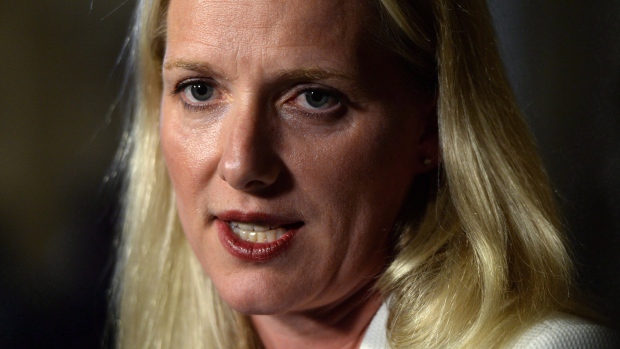Sep 19, 2016
Ottawa to impose carbon price on provinces in October: Minister
, Reuters

TORONTO - Canada will impose a carbon price on provinces that do not adequately regulate emissions by themselves, Environment Minister Catherine McKenna said on Sunday without giving details on how the Liberal government will do so.
Speaking on the CTV broadcaster's "Question Period," a national politics talk show, McKenna said the new emissions regime will be in place sometime in October, before a federal-provincial meeting on the matter.
She only said the government will have a "backstop" for provinces that do not comply, but did not address questions on penalties for defiance.
Canada's 10 provinces, which enjoy significant jurisdiction over the environment, have been wary of Ottawa's intentions and have said they should be allowed to cut carbon emissions their own way.
Prime Minister Justin Trudeau persuaded the provinces in March to accept a compromise deal that acknowledged the concept of putting a price on carbon emissions, but agreed the specific details, which would take into account provinces' individual circumstances, could be worked out later.
Canada's four largest provinces, British Columbia, Alberta, Ontario and Quebec, currently have either a tax on carbon or a cap-and-trade emissions-limiting system.
But Brad Wall, the right-leaning premier of the western energy-producing province of Saskatchewan, has long been resistant to federal emissions-limiting plans.
“The federal government’s ‘collaborative’ approach does not seem very collaborative,” Wall said in an emailed statement to BNN. “They seem to be doing this at the urging of the United Nations who they are more concerned about pleasing than are they concerned with the positions of their own provincial governments.”
McKenna said provinces such as Saskatchewan can design a system in which emissions revenues go back to companies through tax cuts, which would dampen the impact of the extra cost brought by the carbon price.
McKenna added the government requires some uniformity in emissions reductions, but provinces can have different regulation methods.
When contacted, McKenna's ministry, Environment and Climate Change Canada, repeated the "backstop" that she mentioned, but did not provide more details.
On Sunday's program, McKenna did not address questions on whether the government will update its emission targets, which were set by the former Conservative government
The previous government had pledged to cut greenhouse gas emissions to 30 percent below 2005 levels by 2030, a target that official figures show is out of reach in the absence of radical measures.
McKenna had called the prices "a floor, not a ceiling," but said on Sunday only that the government will meet the previous targets "at least."
A ministry spokeswoman said that as far back as the last summer, the Liberal platform stated the party would move away from the setting of the arbitrary emissions targets she says has been done in the past.



